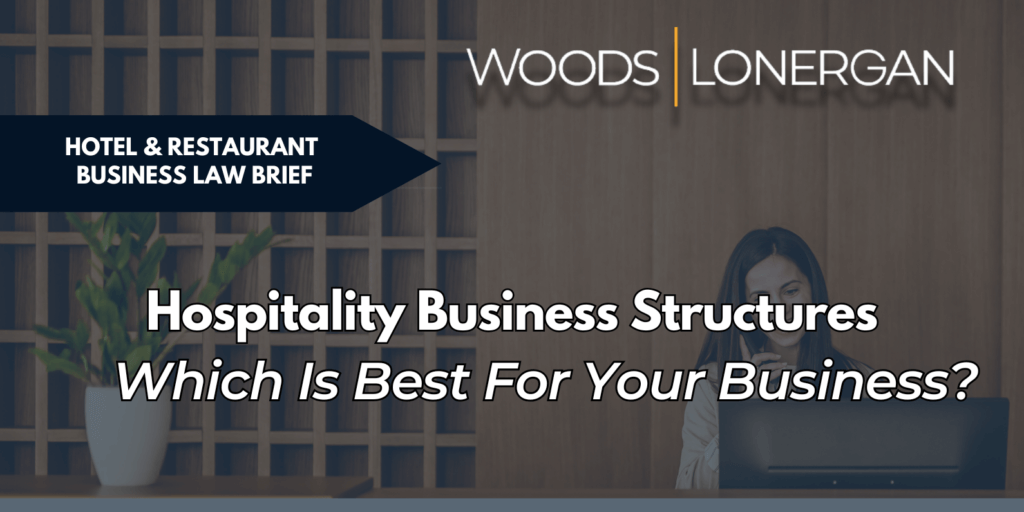
Whether you are dreaming of starting a restaurant or getting into the bed and breakfast game, choosing the right business for your hospitality endeavor is just as important as it is with starting up any other kind of business.
The legal structure you select for your hospitality business can have significant impacts on how your business is taxed, your personal liability exposure, and other important aspects of how your business operates and is managed.
In this post, our experienced NYC hospitality lawyers will review some of the more popular types of business structures for hospitality businesses so that you can evaluate which one might suit your business purposes best.
For assistance, please reach us online or call (212) 684-2500 today.
Types Of Hospitality Business Structures
Here are the common types of hospitality businesses or structures.
1. Sole Proprietorship
A sole proprietorship is actually one of the primary business structures used in the hospitality industry.
The simplest form of business ownership, a sole proprietorship, is also usually the least expensive one to establish as well. No separate entity from the business’s owner is created and so there is not much paperwork to complete. Profits and losses of the business are direct profits and losses to the business’s owner.
This means that both are to be included in the personal income taxes of the owner. If you are considering a sole proprietorship, however, you should know that, while it may give you maximum control over your business, it comes at the cost of direct liability exposure.
Your personal finances and property will be fair game should your business ever be sued.
2. Partnership
Should your hospitality business be planning for multiple owners, a partnership is the simplest business ownership form available. Within the partnership umbrella, there are different types.
In a general partnership, all general partners enjoy equal control over business matters and also have equal personal liability exposure.
In a limited partnership, one general partner takes control and manages the business, while having unlimited liability exposure. The other owners have limited liability, but have less control over the business.
Lastly, a limited liability partnership provides, as the name suggests, limited liability for all business owners. In fact, each owner can only be held liable for the debts of the company up to the amount the owner invested in the business.
3. Limited Liability Company (LLC)
A limited liability company (LLC) is the most common business structure selected among business owners in general, and within the hospitality industry as well.
When an LLC is established, an entity separate from the owners is created. Not only does this protect owners from personal liability exposure, but it also allows flexibility in tax treatment, among other benefits.
LLC members have the option to have income and debts of the LLC pass through to their own personal taxes.
4. Corporation
Alternatively, the corporate structure is also a common business structure used in the hospitality business community. The corporation structure offers the most liability protection from owners and allows flexibility in ownership changes that may not be available with an LLC.
Contact an Experienced New York Hospitality Attorney
Choosing your hospitality business’s structure is one of the most important choices you will make as a business owner. Let the knowledgeable team at Woods Lonergan PLLC help you make the best possible choice and help you set your business up for success.
Contact us online or call (212) 684-2500 today to get started.
